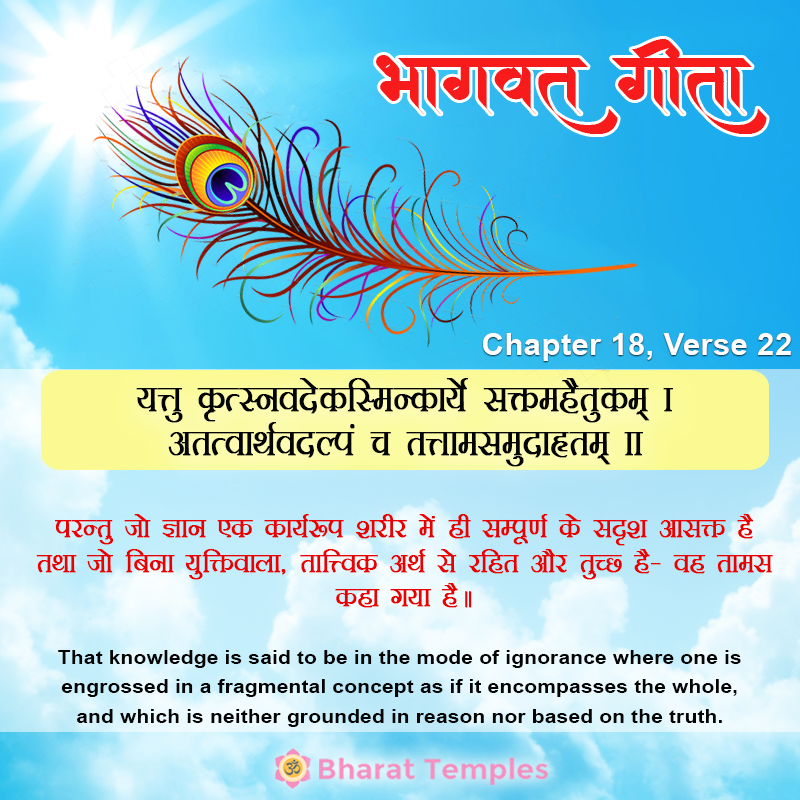Contents
यत्तु कृत्स्नवदेकस्मिन्कार्ये सक्तमहैतुकम् |
अतत्वार्थवदल्पं च तत्तामसमुदाहृतम् ||
yat tu kṛitsna-vad ekasmin kārye saktam ahaitukam
atattvārtha-vad alpaṁ cha tat tāmasam udāhṛitam
भावार्थ:
परन्तु जो ज्ञान एक कार्यरूप शरीर में ही सम्पूर्ण के सदृश आसक्त है तथा जो बिना युक्तिवाला, तात्त्विक अर्थ से रहित और तुच्छ है- वह तामस कहा गया है॥22॥
Translation
That knowledge is said to be in the mode of ignorance where one is engrossed in a fragmental concept as if it encompasses the whole, and which is neither grounded in reason nor based on the truth.
English Translation Of Sri Shankaracharya’s Sanskrit Commentary By Swami Gambirananda
18.22 But tat, that knowledge; is udahrtam, said to be; tamasam, born of tamas; yat, which is; saktam, confined; ekasmin, to one; karye, from, to one body or to an external image etc., krtsnavat, as though it were all, as though it comprehended everything, thinking, ‘The Self, or God, is only this much; there is nothing beyond it,’-as the naked Jainas hold that the soul conforms to and has the size of the body, or (as others hold) that God is merely a stone or wood-, remaining confined thus to one form; ahaitukam, which is irrational, bereft of logic; a-tattvarthavat, not concerned with truth-tattvartha, truth, means some-thing just as it is; that (knowledge) which has this (truth) as its object of comprehension is tattvarthavat; that without this is ; a-tattvarthavat-; and which, on account of the very fact of its being irrational, is alpam, trivial, because it is concerned with trifles or is productive of little result. This kind of knowledge is indeed found in non-discriminating creatures in whom tamas predominates.
Now is being stated the threehold division of action:

